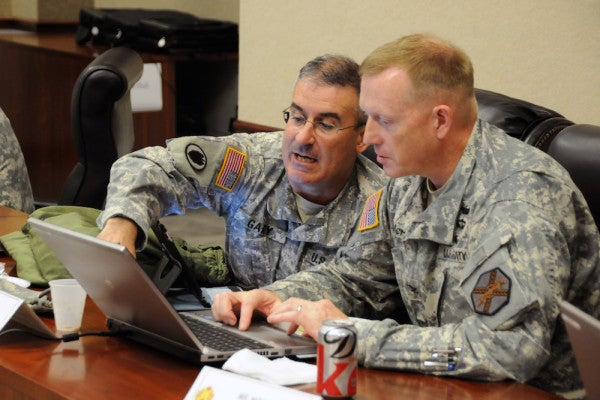3 Ways Veterans Should Be Highlighting Their Military Accomplishments
Translating your experience into civilian terms takes more than simply replacing military acronyms and terminology with civilian equivalents. As a...

Translating your experience into civilian terms takes more than simply replacing military acronyms and terminology with civilian equivalents. As a transitioning veteran, writing an effective resume requires adapting to an entirely different culture. Approaching it in the same way you filled out your military performance evaluations will result in potential employers failing to understand your full potential. Here are some things to keep in mind to avoid some of the most common mistakes veterans make.
1. List accomplishments, not billets.
Avoid using phrases such as “Responsible for… ” and “Accountable for… ” These tell the reader what your job description was, but don’t say anything about whether you were actually any good at your job. Every bulleted statement on your resume should consist of an action that you took, and the outcome that resulted. Also, avoid using the verb “ensured” because it is simply too vague. What did you actually do? Did you “ensure that all vehicles were kept in working order,” or did you “develop and supervise a schedule of vehicle preventative maintenance implemented by a team of 12”?
Don’t say, “Responsible for keeping accountability of $2 million worth of communications equipment.”
Do say, “Developed a system of organization for $2 million worth of communications equipment, enabling rapid deployment of replacement gear to teams experiencing technical problems.”
2. Own your success.
In the military, we learned that we succeed or fail as a team. While this will still be true in the civilian workplace, it is not considered bragging or disloyal to highlight your individual contribution and impact. Employers need to see what it is that you personally did to achieve that victory, otherwise they cannot tell whether you are a liability or a leader.
Ask yourself, if you had been pulled away from your teammates during their most challenging moments, what would they have missed? How would they have needed to compensate for your absence? How much harder would they have had it? If you aren’t sure, ask them and see what they say. That’s your impact.
3. Play up collateral duties.
Seemingly unglamorous collateral duties are often just as compelling to employers as your actual occupational specialty, if not more. Veterans tend not to realize how valuable their experience wearing unusual hats can be. That side duty that you got stuck with because no one else in your unit wanted it can turn out to be the golden ticket to a great job.
Roles such as “unit training NCO” are full of personnel management tasks that give you the perspective to more effectively lead a team and work with a company’s human resources department. A stint as an equal opportunity officer tells potential employers that you have what it takes to embody their values of being a welcoming environment that embraces diversity. Serving on a committee to plan a Marine Corps birthday ball, or unit change of command ceremony, shows you have the skills to coordinate events and conferences in the private sector, and have managed a budget if you didn’t normally do so in your primary military occupation.
Even leading the annual Toys for Tots charity drive can give you an edge. Many companies have philanthropic initiatives your experience might contribute to, and if the company you are applying to doesn’t already give back to their community, you can propose a plan to help them start. Showing that you care not only about your own success, but also making the organization a better place is a powerful message to the people evaluating your application.
When writing your resume, take a look at the wider landscape of your military experiences. Often, you will find that you have overlooked ways your secondary roles can contribute to pitching yourself to your future employer.